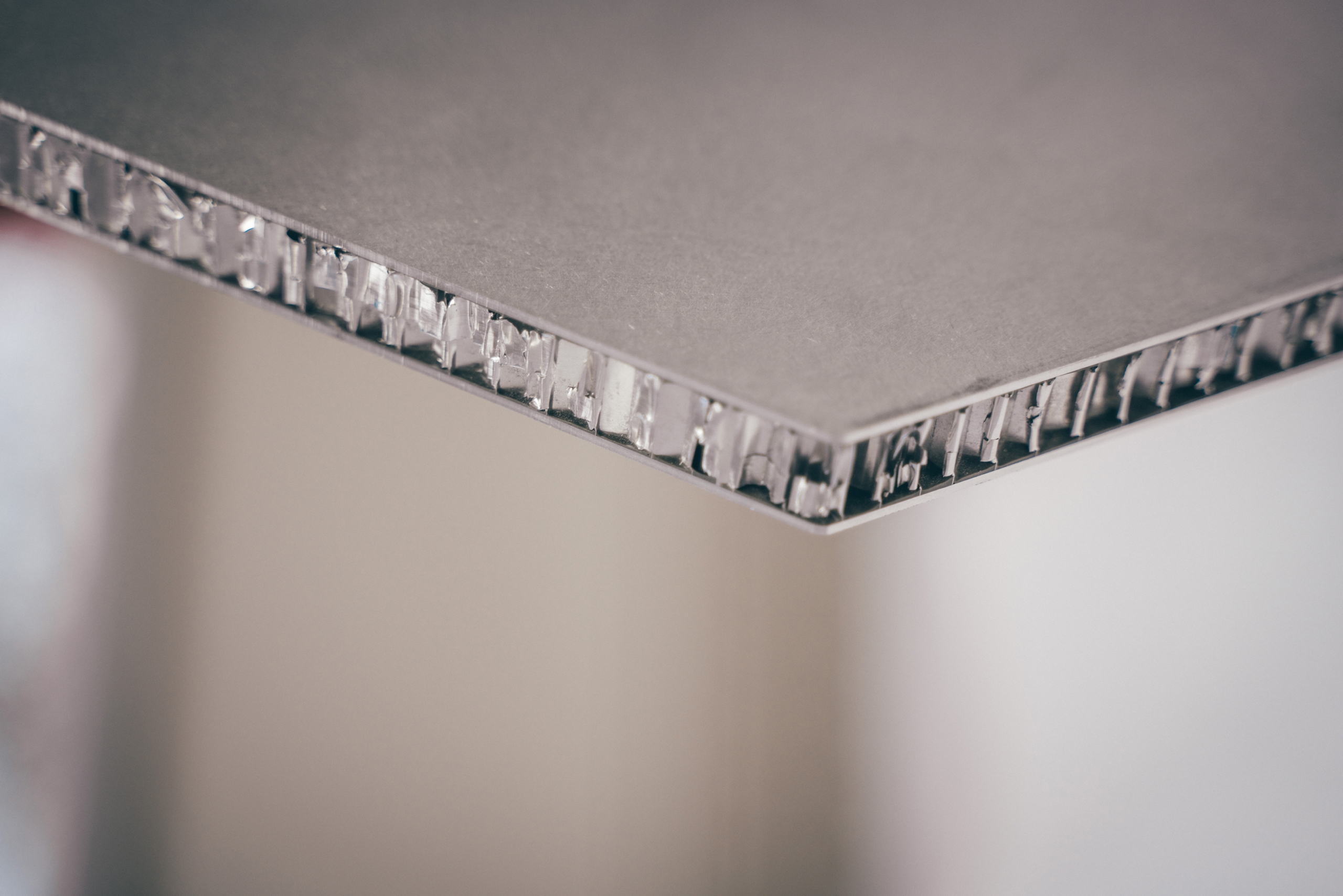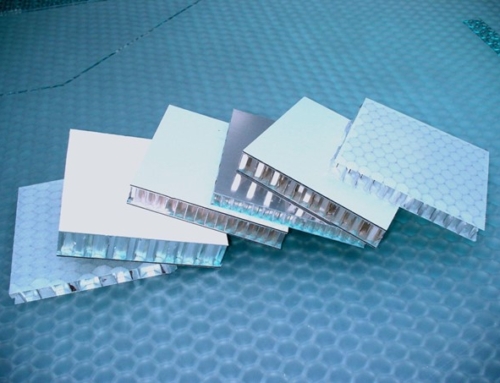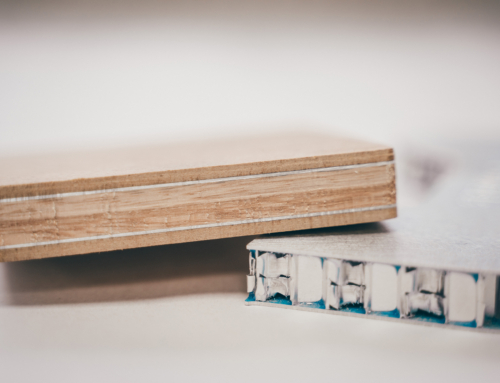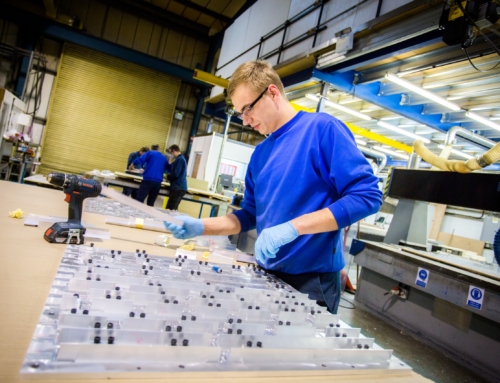Building motorhomes and campervans with lightweight composite sandwich panels is becoming increasingly more favoured over traditional ”stick and tin” builds by both manufacturers and consumers.
There are many key points to consider when choosing the right material to use for your motorhome or campervan. The materials used will all play a major role in everything from fuel efficiency and insulation to lifespan, maintenance needs and durability of your vehicle.
Conventional “stick and tin” construction involves laying aluminium cladding over a timber frame, whilst the newer process involves assembling lightweight composite sandwich panels.
Motorhomes and campervans built with wood are likely to be heavier, harder to clean and therefore more susceptible to rot, water damage and warping. One built with composite sandwich panels, on the other hand, will be incredibly durable, lightweight, and resistant to changing weather.
Before we get into more detail about the benefits of using composite sandwich panels let’s look a little deeper into the growing motorhome industry.
Facts about the motorhome and campervan industry:
The latest figures released by the National Caravan Council (NCC) show that a record number of motorhomes and campervans were sold in the UK in the past year thanks to a continued growth in demand for UK holidays.
A total of 16,608 new motorhomes were registered with the DVLA in the 12 months from 1 July 2020 to the end of June 2021, an 8.25 percent increase on the previous record of 15,342 in the same period in 2018/2019 (pre-COVID). The total value of sales of new motorhomes is the highest it has ever been, now nearing £1.15 billion p.a. Campervan sales have been particularly buoyant.
John Lally, Director General of the NCC, commented: “COVID-19 restrictions on travel have helped, as the industry offers ‘social distance by design’ products. The industry is successfully attracting a new, younger customer while retaining existing ones.”
“Motorhome manufacture has become a British success story as firms have a well-deserved reputation for design and innovation which, coupled with investment in more sophisticated production processes, helped to see them through these unprecedented times – and grow,” added Lally.
There are many factors involved in the success of motorhomes. Aside from the growing trend for staycations due to COVID and overseas travel restrictions, motorhomes provide great access to the countryside and a variety of outdoor leisure activities as well as flexibility to ‘get up and go’ and explore.
How are lightweight composite sandwich panels made?
An aluminium composite panel manufactured by BCP comprises of aluminium honeycomb core sandwiched in between two aluminium alloy skins. The layers of the panel are bonded together with an extremely strong engineering adhesive and pressed together until the adhesive cures. The result is a complete aluminium composite panel.
The manufacturing process allows many fixtures and fittings to be installed within the aluminium composite panels. Our standard size panels are 2500mm x 1250mm and 3000mm x 1500mm with thicknesses starting at 5mm. Other dimensions and thicknesses are available. A wide variety of surfaces and finishes can also be applied to the panels.
The process used to manufacture the BCP range offers a very flat surface in conjunction with tight tolerances to the surface area ratio (+/- 0.25 mm per square metre). This is particularly beneficial for applications that require tight tolerances alongside smooth surface finishes.
BCP’s aluminium composite panels are suitable for use throughout a motorhome or campervan as a lightweight alternative to timber and can be used for a variety of applications including lining the floor and body, as well as internal compartments such as the washroom area and fixed furnishings.
What are the benefits of using lightweight composite sandwich panels for building motorhomes?
With a unique combination of properties, there are several benefits of using aluminium honeycomb composite panels for the construction, conversion and building of motorhomes and campervans:
– Lightweight alternative to conventional materials such as wood and metal fabrications
– Durable, rigid, and strong – able to withstand compression, tension, bending, and shear forces associated with vehicle movements
– Lower energy consumption – lower weight is the key advantage to saving energy
– Lower maintenance and refurbishment costs
– Improves fuel efficiency – less weight means less fuel and less CO2 emissions
– Easier installation due to lightweight properties
– Water / moisture-resistant – reduces vulnerability to moisture and corrosion seen with more traditional materials
If you are interested in using lightweight composite sandwich panels for your motorhome or campervan and would like to find out more information or to speak to a member of our team, please do not hesitate to get in contact.
Alternatively, to see our range of standard 600mm x 600mm panels available ‘off the shelf’ in 5 different thicknesses with no minimum order value or manufacturing delay, visit our online shop.
You can also keep up to date with all things BCP related via our website here and by following us on Facebook, Twitter, Instagram and LinkedIn.
Sources:
www.caravangossip.co.uk/the-uk-sets-new-record-for-motorhome-and-campervan-sales






